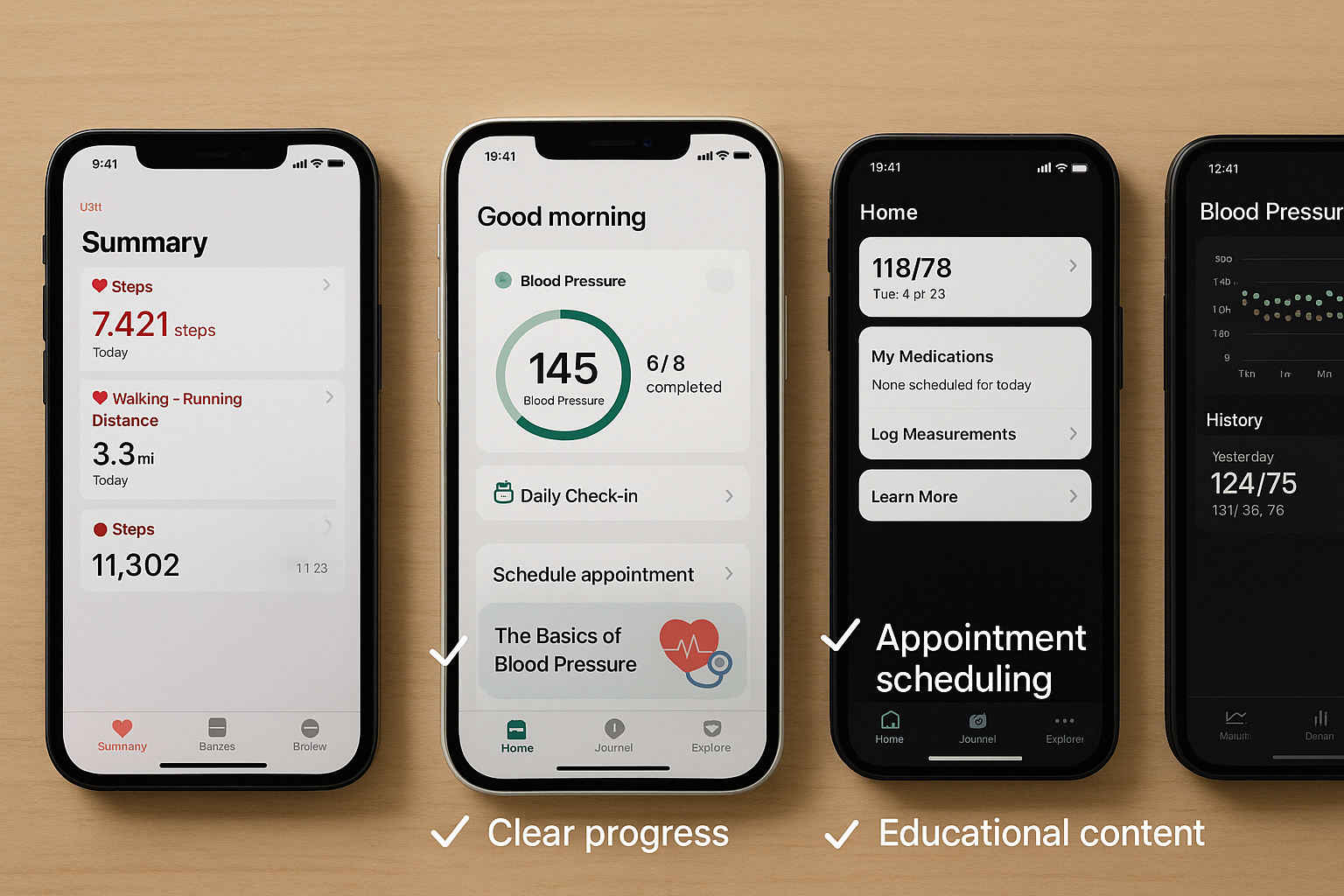The healthcare marketing landscape is undergoing unprecedented transformation. While global healthcare marketing spending reached $42.7 billion in 2024 according to PwC’s Global Healthcare Marketing Report, the industry faces unique challenges that traditional marketing agencies simply aren’t equipped to handle.
Consider this: 68% of healthcare marketing campaigns fail to meet their objectives not because of poor creative execution or insufficient budget, but because they lack the specialized expertise required to navigate complex regulatory environments, clinical evidence requirements, and multi-stakeholder decision-making processes that define healthcare marketing.
For pharmaceutical companies, medical device manufacturers, biotech firms, and digital health platforms, the choice between working with a generalist agency versus a specialized healthcare marketing agency can determine the difference between breakthrough market success and costly compliance failures. This comprehensive analysis reveals why healthcare brands increasingly recognize that they need true strategic partners who understand their unique challenges—not just agencies that happen to work in healthcare.
1. The Unique Complexity of Healthcare Marketing
Regulatory Compliance as a Competitive Advantage
Healthcare marketing operates under regulatory frameworks that would paralyze most traditional agencies. The Food and Drug Administration (FDA) requires that all promotional materials for prescription drugs undergo rigorous review processes, while the Federal Trade Commission (FTC) monitors health claims with unprecedented scrutiny.
Pharma marketing experts understand that compliance isn’t just about avoiding penalties—it’s about building sustainable competitive advantages. Companies that master regulatory compliance can move faster, take calculated risks, and launch campaigns that competitors cannot replicate without similar expertise.
The complexity extends beyond federal regulations. State medical board requirements vary significantly, and international markets each have unique regulatory landscapes. The European Medicines Agency (EMA) has different promotional guidelines than the FDA, while emerging markets often have evolving frameworks that require constant monitoring.
Digital health branding faces additional complexity with HIPAA compliance, data privacy regulations, and platform-specific healthcare advertising policies. Google’s healthcare advertising requirements change frequently, and Facebook’s health-related content policies can shut down campaigns overnight if not properly managed.
Multi-Stakeholder Decision-Making Processes
Healthcare purchases involve complex decision-making processes that traditional B2B marketing approaches cannot address effectively:
Clinical Evidence Requirements: Healthcare decision-makers demand peer-reviewed clinical evidence, real-world outcomes data, and comparative effectiveness research. Marketing messages must be supported by rigorous scientific evidence that can withstand clinical scrutiny.
Payer Involvement: Insurance companies, pharmacy benefit managers, and government payers increasingly influence healthcare purchasing decisions. Marketing strategies must address value-based care models, health economics, and reimbursement pathways.
Patient Advocacy Groups: Patient organizations wield significant influence in healthcare marketing, particularly for rare diseases and chronic conditions. These groups require authentic engagement and long-term relationship building rather than transactional marketing approaches.
Regulatory Bodies: FDA interactions, clinical trial communications, and regulatory approval processes require specialized expertise that goes far beyond traditional marketing agency capabilities.
2. The Pharmaceutical Marketing Expertise Gap
Understanding Clinical Development Timelines
Pharmaceutical marketing requires understanding of clinical development processes that can span decades. Life sciences marketing professionals must coordinate marketing strategies with clinical trial timelines, regulatory submission schedules, and patent expiration dates.
Pre-Launch Marketing Strategy: Successful pharmaceutical launches begin years before FDA approval. This includes disease awareness campaigns, key opinion leader engagement, and market access preparation that requires deep understanding of clinical development phases.
Clinical Trial Recruitment: Modern pharmaceutical marketing often includes patient recruitment for clinical trials. This requires specialized knowledge of Good Clinical Practice (GCP) guidelines, informed consent processes, and patient privacy protection.
Post-Market Surveillance: Pharmaceutical marketing must incorporate pharmacovigilance requirements and adverse event reporting obligations. Marketing teams need to understand how promotional activities might impact safety monitoring and regulatory compliance.
Medical Affairs Integration
The most successful pharmaceutical companies integrate medical affairs with marketing strategy from the earliest stages:
Medical Science Liaisons (MSL) Coordination: Marketing strategies must align with MSL activities and scientific exchange programs. This requires understanding the distinction between promotional and non-promotional activities.
Key Opinion Leader (KOL) Engagement: Building relationships with clinical experts requires long-term strategies that go beyond traditional influencer marketing. These relationships must comply with sunshine act reporting requirements and fair market value guidelines.
Scientific Publication Strategy: Marketing teams must coordinate with medical affairs to ensure consistent messaging across peer-reviewed publications, conference presentations, and promotional materials.
Advisory Board Management: Pharmaceutical marketing often involves managing advisory boards and scientific committees that provide clinical input on marketing strategies while maintaining appropriate compliance boundaries.
3. Digital Health Branding Challenges
Patient Privacy and Data Protection
Digital health platforms face unique branding challenges related to patient data protection and privacy compliance:
HIPAA Compliance in Marketing: The Health Insurance Portability and Accountability Act (HIPAA) creates complex requirements for how patient information can be used in marketing activities. Traditional agencies often lack the expertise to navigate these requirements effectively.
State Privacy Regulations: California’s Consumer Privacy Act (CCPA) and other state privacy laws create additional compliance requirements for digital health brands operating across multiple jurisdictions.
International Data Transfer: Digital health platforms serving global markets must comply with GDPR, data localization requirements, and cross-border data transfer regulations that significantly impact marketing technology choices.
Clinical Data Integration: Digital health brands often need to integrate clinical outcomes data with marketing analytics while maintaining appropriate privacy protections and consent management.
FDA Software as Medical Device (SaMD) Considerations
Digital health products increasingly fall under FDA regulation as Software as Medical Device, creating unique marketing challenges:
510(k) Clearance Communications: Products with FDA clearance must communicate regulatory status accurately without making inappropriate claims about clinical efficacy or safety.
Clinical Evidence Requirements: FDA-regulated digital health products must base marketing claims on clinical evidence submitted during the regulatory review process.
Labeling and Indication Compliance: Marketing communications must align precisely with FDA-approved labeling and indications for use, requiring legal review of all promotional materials.
Post-Market Study Obligations: Many digital health products have post-market study requirements that impact how outcomes and effectiveness can be communicated in marketing materials.
4. The Medical Device Marketing Landscape
Complex Sales Cycles and Stakeholder Management
Medical device marketing involves sophisticated sales processes that require specialized expertise:
Hospital Value Analysis Committees: Medical device purchases often go through formal committee review processes that evaluate clinical outcomes, cost-effectiveness, and workflow integration. Marketing strategies must address each committee stakeholder’s specific concerns.
Clinical Training Requirements: Medical device marketing must coordinate with clinical training programs and credentialing requirements. This includes developing educational materials that meet continuing medical education (CME) standards.
Reimbursement Pathway Communication: Medical device marketing must clearly communicate reimbursement pathways, CPT codes, and coverage policies that affect adoption decisions.
Capital Equipment Considerations: High-value medical devices require marketing approaches that address capital budgeting cycles, financing options, and return on investment calculations.
Regulatory Pathway Communications
Medical device marketing must communicate regulatory status accurately while building market excitement:
FDA Premarket Approval (PMA) Process: Class III medical devices require extensive clinical data and FDA review processes that create unique marketing challenges and opportunities.
De Novo Pathway Communications: Novel medical devices often go through FDA’s De Novo pathway, which requires careful communication about regulatory precedents and clinical evidence.
Quality System Regulation Compliance: Medical device marketing must reflect quality system compliance and manufacturing standards that demonstrate product reliability and safety.
International Regulatory Harmonization: Medical device companies often pursue CE marking, Health Canada approval, and other international regulatory pathways that require coordinated global marketing strategies.
5. Biotech and Life Sciences Marketing Specialization
Early-Stage Company Challenges
Biotech companies face unique marketing challenges that require specialized expertise:
Pipeline Communication: Biotech marketing must communicate complex drug development pipelines to investors, partners, and stakeholders while managing regulatory requirements and competitive considerations.
Intellectual Property Protection: Marketing communications must protect intellectual property while building market awareness and partnership opportunities.
Clinical Trial Transparency: Biotech companies must balance clinical trial transparency requirements with competitive strategy and investor relations considerations.
Regulatory Milestone Communication: Biotech marketing must effectively communicate regulatory milestones, clinical trial results, and development progress to diverse stakeholder groups.
Investor Relations Integration
Successful biotech marketing integrates investor relations with broader marketing strategy:
Scientific Advisory Board Communications: Biotech companies often rely on scientific advisory boards that require specialized communication approaches and compliance with securities regulations.
Partnership Development Support: Biotech marketing must support business development activities including partnership presentations, due diligence support, and strategic alliance communications.
Competitive Intelligence: Biotech marketing requires sophisticated competitive intelligence capabilities that track competitor pipeline developments, regulatory filings, and clinical trial results.
Merger and Acquisition Communications: Biotech companies frequently engage in M&A activities that require specialized communication expertise and regulatory compliance.
6. Healthcare Marketing Technology Stack Requirements
Specialized Analytics and Attribution
Healthcare marketing requires sophisticated analytics capabilities that go beyond traditional marketing measurement:
Clinical Outcome Integration: Healthcare marketing analytics must integrate clinical outcomes data with marketing metrics to demonstrate return on investment and patient impact.
Multi-Touch Attribution: Healthcare decision-making processes often span months or years, requiring attribution models that can track complex, multi-stakeholder customer journeys.
Regulatory Compliance Monitoring: Healthcare marketing technology must include compliance monitoring capabilities that track promotional claim substantiation and regulatory requirement adherence.
Real-World Evidence Integration: Healthcare marketing increasingly relies on real-world evidence data that requires specialized analytics capabilities and clinical expertise.
HIPAA-Compliant Marketing Technology
Healthcare marketing technology stacks must maintain HIPAA compliance while providing sophisticated marketing capabilities:
Customer Data Platform (CDP) Compliance: Healthcare CDPs must include business associate agreements, encryption requirements, and access controls that exceed standard marketing technology security measures.
Marketing Automation Compliance: Email marketing, lead nurturing, and automation workflows must comply with HIPAA requirements while maintaining marketing effectiveness.
Analytics and Reporting Safeguards: Healthcare marketing analytics must include appropriate safeguards to prevent inadvertent patient data exposure while providing actionable insights.
Integration with Clinical Systems: Healthcare marketing technology often needs to integrate with electronic health records, clinical trial management systems, and other clinical technologies.
7. The Strategic Partnership Advantage
Deep Industry Knowledge and Relationships
Specialized healthcare marketing partners bring industry relationships and knowledge that traditional agencies cannot replicate:
Regulatory Agency Relationships: Experienced healthcare marketing partners have established relationships with FDA reviewers, CMS officials, and other regulatory stakeholders that can accelerate approval processes and resolve compliance questions.
Clinical Key Opinion Leader Networks: Healthcare marketing partners maintain relationships with clinical experts across therapeutic areas, enabling more effective advisory board recruitment and clinical validation.
Industry Association Involvement: Specialized partners actively participate in industry associations like PhRMA, BIO, and HIMSS, providing access to industry intelligence and networking opportunities.
Payer and Health System Relationships: Healthcare marketing partners understand payer decision-making processes and maintain relationships with health system executives that can accelerate market access.
Proactive Compliance Management
Specialized healthcare marketing partners provide proactive compliance management that goes beyond reactive legal review:
Promotional Review Committees (PRC): Healthcare marketing partners can establish and manage internal promotional review committees that ensure all marketing materials meet regulatory requirements before publication.
Adverse Event Reporting Integration: Healthcare marketing partners understand how marketing activities might generate adverse event reports and can establish appropriate monitoring and reporting processes.
Global Regulatory Coordination: For multinational healthcare companies, specialized partners can coordinate regulatory compliance across multiple jurisdictions and regulatory frameworks.
Regulatory Change Management: Healthcare marketing partners monitor regulatory changes and proactively adjust marketing strategies to maintain compliance and competitive advantage.
8. Measuring Success in Healthcare Marketing
Healthcare-Specific Key Performance Indicators
Healthcare marketing success requires metrics that go beyond traditional marketing KPIs:
Clinical Evidence Generation: Healthcare marketing must contribute to clinical evidence generation through patient registries, outcomes studies, and real-world evidence collection.
Regulatory Milestone Achievement: Marketing effectiveness should be measured by contribution to regulatory milestone achievement including FDA approvals, reimbursement decisions, and market access success.
Healthcare Provider Adoption: B2B healthcare marketing must track provider adoption rates, clinical integration success, and patient outcome improvements.
Patient Outcome Correlation: The most sophisticated healthcare marketing measurement correlates marketing activities with patient outcomes, clinical effectiveness, and population health improvements.
Return on Investment Calculation
Healthcare marketing ROI calculation requires understanding of industry-specific factors:
Long Sales Cycle Consideration: Healthcare ROI calculations must account for sales cycles that can span years, requiring sophisticated attribution modeling and customer lifetime value calculation.
Clinical Trial Cost Integration: For pharmaceutical and medical device companies, marketing ROI must consider clinical trial costs, regulatory expenses, and development timelines.
Market Access Investment: Healthcare ROI calculations should include market access investments, payer engagement costs, and reimbursement pathway development expenses.
Competitive Response Modeling: Healthcare marketing ROI must consider competitive responses, patent expiration impacts, and market exclusivity periods.
9. Crisis Management and Reputation Protection
Healthcare-Specific Crisis Scenarios
Healthcare brands face unique crisis scenarios that require specialized management expertise:
Adverse Event Management: Healthcare marketing partners must understand how adverse events, safety signals, and clinical trial results impact marketing communications and brand reputation.
Regulatory Investigation Response: Healthcare companies may face FDA investigations, FTC inquiries, or other regulatory scrutiny that requires specialized crisis communication expertise.
Clinical Trial Failure Communication: When clinical trials fail to meet primary endpoints, healthcare marketing partners must manage stakeholder communications while maintaining regulatory compliance.
Product Recall Management: Healthcare product recalls require specialized communication approaches that balance public safety with brand protection and regulatory compliance.
Stakeholder Communication During Crisis
Healthcare crisis management requires coordinated communication across multiple stakeholder groups:
Patient and Provider Communication: Crisis communications must prioritize patient safety while maintaining provider confidence and clinical relationship integrity.
Regulatory Agency Coordination: Healthcare crisis management often requires direct coordination with FDA, CMS, and other regulatory agencies throughout the crisis response.
Investor Relations Integration: Public healthcare companies must coordinate crisis communications with investor relations requirements and securities regulations.
Media Relations Expertise: Healthcare crisis communication requires reporters and editors who understand clinical complexity and regulatory requirements.
10. Global Healthcare Marketing Considerations
International Regulatory Harmonization
Healthcare marketing partners must navigate complex international regulatory environments:
ICH Guidelines Compliance: International Conference on Harmonisation (ICH) guidelines create global standards for pharmaceutical marketing that require specialized expertise to implement effectively.
Country-Specific Requirements: Each country has unique healthcare marketing regulations, reimbursement systems, and cultural considerations that impact marketing strategy development.
Cross-Border Clinical Trial Coordination: Global healthcare marketing must coordinate with international clinical trial activities while maintaining regulatory compliance in multiple jurisdictions.
Transfer Pricing Considerations: International healthcare marketing activities must consider transfer pricing regulations and tax implications of global marketing spend allocation.
Cultural and Healthcare System Differences
Global healthcare marketing requires understanding of diverse healthcare systems and cultural considerations:
Socialized Medicine Marketing: Marketing in countries with socialized medicine systems requires different approaches than private insurance-based systems, focusing on population health outcomes and cost-effectiveness.
Emerging Market Considerations: Healthcare marketing in emerging markets must address infrastructure limitations, regulatory development, and economic accessibility challenges.
Cultural Sensitivity in Health Communications: Healthcare marketing must navigate cultural attitudes toward health, illness, and medical intervention that vary significantly across global markets.
Local Partnership Requirements: Many countries require local partnerships or joint ventures for healthcare marketing activities, requiring specialized expertise in international business development.
11. The Future of Healthcare Marketing Partnerships
Artificial Intelligence and Machine Learning Integration
Healthcare marketing partners are increasingly leveraging AI and machine learning technologies:
Clinical Data Analysis: AI-powered analytics can identify patterns in clinical data that inform marketing strategy while maintaining patient privacy and regulatory compliance.
Predictive Modeling for Market Access: Machine learning models can predict payer coverage decisions, formulary placement, and market access timelines based on historical data and market dynamics.
Personalized Patient Communication: AI enables personalized patient communication at scale while maintaining HIPAA compliance and clinical appropriateness.
Regulatory Compliance Automation: AI-powered systems can automate regulatory compliance checking, promotional review processes, and adverse event monitoring.
Real-World Evidence Integration
Healthcare marketing partnerships increasingly incorporate real-world evidence into marketing strategies:
Real-World Outcomes Studies: Marketing partners can design and execute real-world evidence studies that support marketing claims while generating clinical evidence.
Patient Registry Development: Healthcare marketing partners can establish and manage patient registries that provide ongoing clinical data for marketing and medical affairs activities.
Comparative Effectiveness Research: Marketing partners can conduct comparative effectiveness research that supports market access, payer negotiations, and clinical adoption.
Post-Market Surveillance Integration: Marketing activities can be integrated with post-market surveillance requirements to generate evidence while maintaining regulatory compliance.
12. Choosing the Right Healthcare Marketing Partner
Evaluation Criteria for Healthcare Marketing Partners
Selecting the right healthcare marketing partner requires evaluation of specialized capabilities:
Regulatory Expertise Verification: Evaluate partner regulatory expertise through case studies, compliance track records, and regulatory relationship documentation.
Clinical Understanding Assessment: Assess partner clinical knowledge through therapeutic area expertise, clinical trial experience, and medical affairs integration capabilities.
Technology Platform Evaluation: Review partner technology platforms for HIPAA compliance, analytics capabilities, and integration with healthcare systems.
Team Credentials Review: Evaluate partner team credentials including regulatory affairs experience, clinical backgrounds, and healthcare industry tenure.
Partnership Structure Considerations
Healthcare marketing partnerships require unique structural considerations:
Intellectual Property Protection: Partnership agreements must protect proprietary clinical data, regulatory strategies, and competitive intelligence.
Regulatory Responsibility Allocation: Clear allocation of regulatory responsibilities between partners and clients is essential for maintaining compliance and managing risk.
Clinical Trial Integration: Partnership structures must accommodate clinical trial integration requirements and Good Clinical Practice compliance.
Global Coordination Requirements: International healthcare marketing partnerships require coordination mechanisms that address regulatory, cultural, and operational differences.
Key Takeaways for Healthcare Marketing Success
The healthcare marketing landscape demands specialized expertise that traditional agencies cannot provide. The most successful healthcare brands recognize that they need strategic partners who understand:
- Complex regulatory environments and compliance requirements that vary by product type, therapeutic area, and geographic market
- Multi-stakeholder decision-making processes that involve clinicians, payers, patients, and regulatory bodies
- Clinical evidence requirements and the integration of medical affairs with marketing strategy
- Healthcare-specific technology needs including HIPAA compliance and clinical data integration
- Long-term relationship building with key opinion leaders, regulatory agencies, and industry stakeholders
The distinction between working with a traditional agency and partnering with a specialized healthcare marketing expert can determine whether your healthcare brand achieves breakthrough success or struggles with compliance challenges and market access barriers.
Success in healthcare marketing requires more than creative campaigns and digital expertise—it demands deep industry knowledge, regulatory mastery, and the ability to navigate complex stakeholder relationships while maintaining the highest standards of scientific integrity and patient safety.
Ready to Partner with True Healthcare Marketing Experts?
The healthcare marketing landscape offers unprecedented opportunities for brands that can navigate its complexities effectively. Whether you’re launching a new pharmaceutical product, scaling a digital health platform, or expanding a medical device into new markets, the right specialized partner can accelerate your success while ensuring compliance and building sustainable competitive advantages.
Schedule a strategic consultation with Accelabrand’s healthcare marketing specialists to discover how our deep industry expertise, regulatory knowledge, and clinical understanding can help your healthcare brand achieve breakthrough growth while maintaining the highest standards of compliance and scientific integrity.
Book Your Healthcare Marketing Strategy Session
This analysis represents current best practices in healthcare marketing partnerships as of 2025. Healthcare regulations and industry standards continue to evolve rapidly, so always consult with qualified regulatory and legal experts before implementing new marketing strategies.
Sources and Additional Reading:
- PwC Global Healthcare Marketing Report 2024
- Food and Drug Administration (FDA) Promotional Guidelines
- European Medicines Agency (EMA) Marketing Authorization Guidelines
- Health Insurance Portability and Accountability Act (HIPAA) Privacy Rule
- Federal Trade Commission (FTC) Health Product Advertising Guidelines
- PhRMA Code on Interactions with Healthcare Professionals
- International Conference on Harmonisation (ICH) Guidelines
- Centers for Medicare & Medicaid Services (CMS) Marketing Regulations
- Pharmaceutical Research and Manufacturers of America (PhRMA) Marketing Standards
- Healthcare Financial Management Association (HFMA) Marketing Research
- Medical Device Manufacturers Association (MDMA) Marketing Guidelines
- Biotechnology Innovation Organization (BIO) Marketing Best Practices
#HealthcareMarketing #PharmaMarketing #DigitalHealthBranding #LifeSciencesMarketing #MedicalDeviceMarketing #HealthcareCompliance #RegulatoryAffairs #ClinicalMarketing #HealthcareSEO #BioPharmaMarketing #MedTechMarketing #HealthcareStrategy #PharmaSEO #HealthcareGrowth #MedicalMarketing




